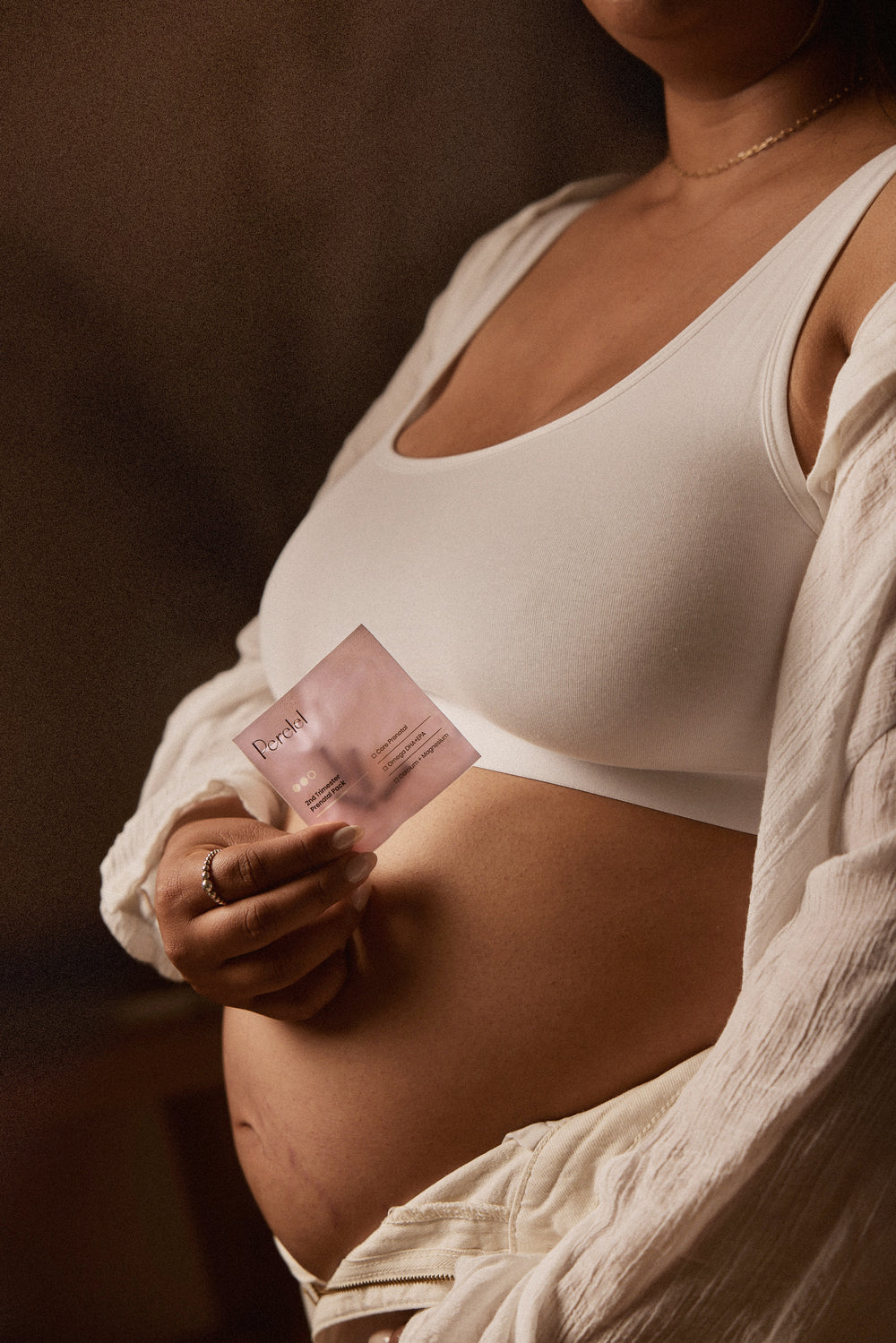This week, you may feel like you’re hitting your stride. Your symptoms are continuing to ease, your bump is continuing to grow, and you may be counting the days until you get your next peek at your baby-to-be on an ultrasound. In the meantime, your baby is growing and changing every day.
Here’s what’s new with both of you this week.
How You’re Feeling at 14 Weeks
By week 14, most women will be feeling far less queasy. That’s because your levels of human chorionic gonadotropin (hCG)—the pregnancy hormone believe to be responsible for early-pregnancy nausea—peak around week 12, then start to gradually taper off.1 As morning sickness fades, your appetite may return, along with some strong pregnancy cravings!
Round ligament pain often starts right around week 14. Round ligaments are rope-like bands that connect your uterus to your lower abdominal wall.3 Your growing uterus puts stress on these ligaments, which may cause a sharp ache or a stretching sensation, especially after sudden movements. Round ligament pain is a normal part of pregnancy, but let your doctor know if it’s accompanied by any symptoms like bleeding, contractions, fever, or severe pain.
You may also see some changes to your skin this week. Around this stage of pregnancy, some women will develop new moles or notice changes to existing moles.3 While it’s normal for moles to appear darker during pregnancy, it’s still a good idea to talk to a dermatologist if a mole suddenly changes shape or color. And because your blood volume increases during pregnancy, you may also start to develop varicose veins under your skin.4Just remember that these changes are natural parts of a healthy pregnancy!
What’s New With Your Baby
Your baby is around 3.5 inches long from the top of their head to their tush, and weighs a little over an ounce and a half — about the size of a peach. Baby’s neck has become longer, and eyelids have formed over the eyes.
Your baby has also started to develop lanugo, a soft coating of “peach fuzz” hair that helps them stay warm and cozy in your uterus.5 Lanugo also helps the vernix — that white, waxy coating you sometimes see on brand-new babies — bind to your baby’s skin, where it acts as a protective barrier against the amniotic fluid.
Your baby’s heart rate is around 150 beats per minute right now. Movements have become less jerky and more fluid, and your baby can now open and close their hands, squint their eyes, and even make facial expressions.6
Your Week 14 To-Do List
Here are a few key steps you can take to support your pregnancy during week 14:
1. Choose healthy snacks.
As nausea subsides in the second trimester, your appetite may ramp up. When you’re feeling peckish, focus on finding healthy foods that’ll nourish your body and your baby’s development. Need something to satisfy a sweet craving? Try this this calcium-rich coconut cereal recipe. “In your second trimester, it's important to get adequate amounts of calcium to support your growing baby's skeletal development, nervous, and circulatory systems,” says Kelly LeVeque, a holistic nutritionist in Los Angeles, CA.
2. Be on the lookout for UTI symptoms.
Urinary tract infections are the most common pregnancy complication, affecting about 10% of pregnancies.7 As your uterus grows, it can prevent your bladder from fully draining, which can boost your risk of developing a UTI.8 Left untreated, this may progress into a more serious kidney infection. So if you notice a burning sensation when you pee—the hallmark symptom—talk to your doctor.
3. Buy (or borrow) some new maternity clothes.
As your bump continues to grow, you may find that even your most forgiving clothes are starting to feel tight. Now’s the perfect time to stock up on maternity tops, dresses, leggings, and bras in breathable fabrics to keep you comfy and cool throughout the next few months. (If you’ve been locking down your spending to help save for motherhood, look for basic pieces you can mix and match—or ask a recently-pregnant friend if you can raid her closet.)
4. Don’t skimp on dental care.
Pregnancy can increase your risk of developing swollen or bleeding gums. In fact, research suggests more than 75% of women experience gingivitis in the second trimester.9 Removing plaque buildup can help to relieve gum inflammation, so be sure to stay up-to-date on your regular dental cleanings while pregnant.10 Gargling with salt water or an anti-gingivitis mouthwash can also help.
References:
- Chuan Liu et al; Emerging Progress in Nausea and Vomiting of Pregnancy and Hyperemesis Gravidarum: Challenges and Opportunities; Jan 2022
- Cleveland Clinic: Round Ligament Pain
- American Pregnancy Association: 14 Weeks Pregnant
- Penn Medicine: Varicose Veins During Pregnancy
- Nemours Kids Health: Week 14
- UW Medicine: Growing Together, 14 to 16 Weeks
- UNM Health: What to Know About Urinary Tract Infections During Pregnancy
- American Pregnancy Association: Urinary Tract Infection – UTI During Pregnancy
- R Shrestha et al; Prevalence of Gingivitis in Second Trimester of Pregnancy; Jul 2022
- Cleveland Clinic: Pregnancy Gingivitis



















